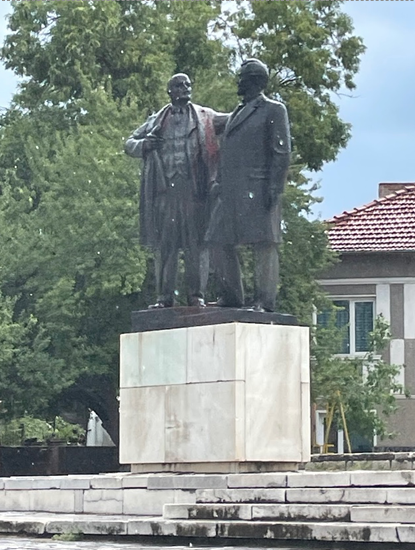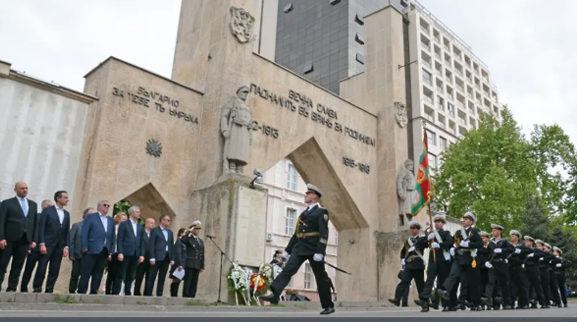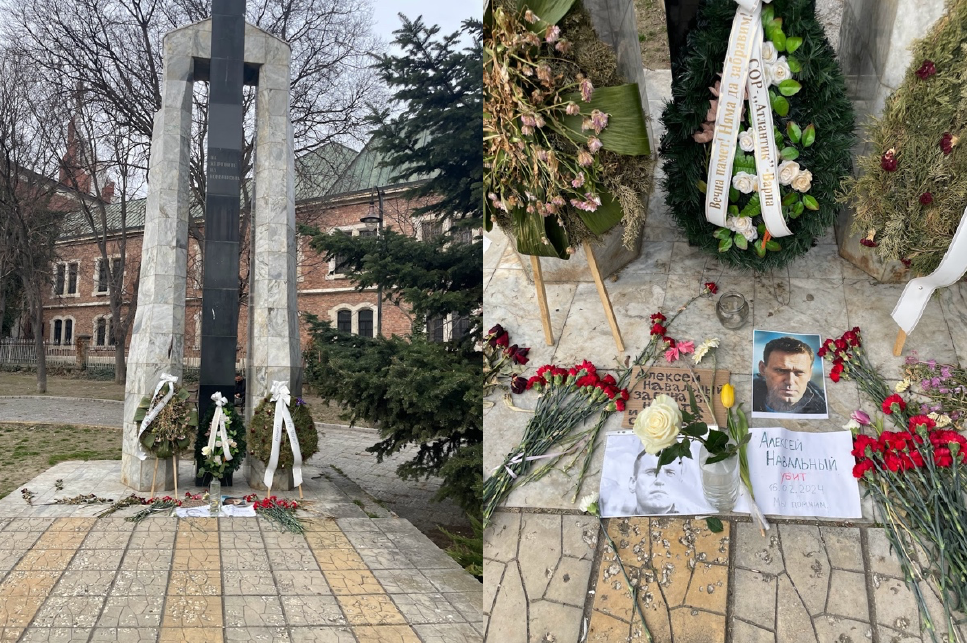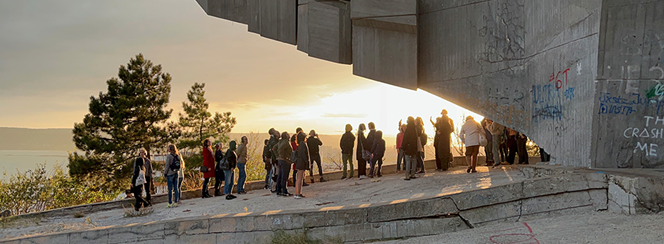Dafina Nedelcheva
PhD candidate, Department of History
Guiliano Fellow, Spring 2024 “Europe’s Post-Soviet (Memory) Spaces” (Varna, Bulgaria)
“Europe’s Post-Soviet (Memory) Spaces” (Varna, Bulgaria)
How was European post-communist memory constructed and projected?
I analyzed the renewed role of Soviet monuments within a shifting political climate in Europe. The 2022 Russian invasion of Ukraine has revitalized narrative battles dominating political and historical debates for almost 30 years. I traveled to Bulgaria to study the Soviet monuments, which have become virtual battlefields for the conflict between pro-Ukrainian/pro-Euro-Atlantic groups and pro-Russian/pro-Eurasian and anti-NATO activists, recently culminating in the dismantlement of the monument to the Soviet Army in Sofia. My research focused on Varna’s memoryscapes, notably the Monument of Bulgarian-Soviet Friendship, monitoring political discourses and the mobilization of competing historical narratives.
Bulgaria’s National Holiday traces back to the 19th century. Officially known as the Day of Liberation of Bulgaria from the Ottoman Oppression, it is celebrated on March 3rd. It commemorates the events of the Russo-Turkish War 1878 that led to the re-establishment of Bulgarian statehood. It is a highly contested narrative. In 2023, proposals for constitutional amendments submitted by the new pro-European coalition government included the idea of switching national holidays. In response, Bulgaria’s pro-Russian President initiated a referendum to maintain March 3, as the country’s national holiday. For many Bulgarians, this date holds symbolic significance linked to Russian interests in Bulgaria. Despite the debate, a substantial majority (69.3%) of Bulgarians advocate for preserving March 3, as a national holiday.

Second World War Commemorations:
The end of World War II is commemorated across Russia and Europe, but the tone and focus of commemorations differ significantly. In Russia, Victory Day is celebrated on May 9th. It is a major national holiday, marked by military parades, the laying of wreaths at war memorials, and speeches celebrating the Soviet role in the defeat of Nazi Germany. The event is highly symbolic in Russian national identity, used to promote the narrative of Russia’s strength. In contrast, European Union countries commemorate the end of World War II on May 8, known as Victory in Europe (VE) Day. The celebrations are generally more subdued, focusing on peace, reconciliation, and the horrors of war. The differing commemorative practices highlight the contrasting narratives. While Russia emphasizes military victory and national pride, the EU stresses the importance of unity, and the lessons learned to prevent future conflicts in Europe. Europe Day, also held on May 9th every year, celebrates peace and unity in Europe. The date marks the anniversary of the historic “Schuman declaration” (May 9, 1950) and his idea for a new form of political cooperation in Europe, which would make war between Europe’s nations unthinkable. Schuman’s proposal is considered to be the beginning of what is now the European Union. Victory Day and Europe Day commemorations represent different, but closely related historical narratives. Bulgaria celebrates Victory Day on May 8, and Europe Day on May 9.
In conclusion, I analyzed media coverage, social media and political discourses on commemoration practices in Bulgaria, and explored the political and societal impact of divergent narratives. My research findings resulted in but was not limited to Bulgaria’s Liberation Day and the end of WWII. Over time the monuments have become sites of memory and reverance into places of worship for ideological myths and convenient historical narratives. These monuments, are surrounded by both hatred and nostalgia, attitudes of revisionism and destruction, as well as the desire for preservation, conservation, and rethinking their function in the present.


The Guiliano Global Fellowship Program offers students the opportunity to carry out
research, creative expression and cultural activities for personal development through
traveling outside of their comfort zone.
GRADUATE STUDENT APPLICATION INFORMATION
UNDERGRADUATE STUDENT APPLICATION INFORMATION
Application Deadlines:
Fall deadline: October 1 (Projects will take place during the Winter Session or spring semester)
Spring deadline: March 1 (Projects will take place during the Summer Session or fall semester)
Please submit any questions here.
